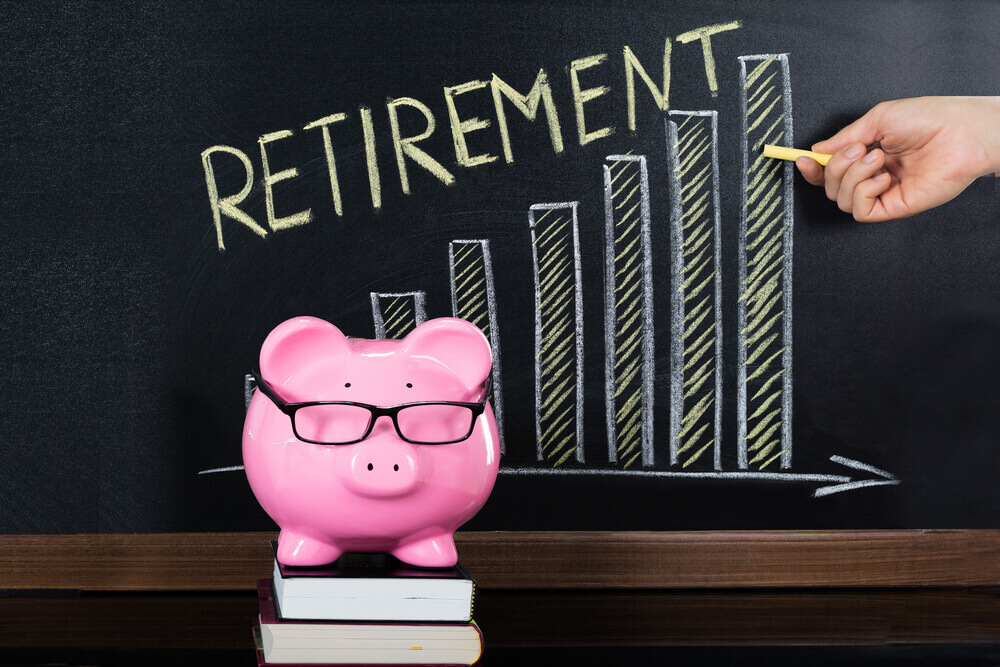The Financial Implications of Retiring at 55
Working hard every day can give anybody dreams of retiring one day and sitting quietly on a lawn chair, sipping their tea, without having to worry about working. These daydreams often lead to people considering retirement at age 55, which in turn, stirs thoughts like “How solid does my pension pot have to be to retire at 55?”
If you want to retire at age 55, the above is a no-brainer, a simple yet the most important question you can ask yourself in this situation, as your pension pot decides the kind of life you want to live after your retirement.
Though even thinking of retiring early is a commitment in itself, and there’s a lot of planning to be done if you’re going to be living the life you dream after retiring, and we’re here to help you go through that path.
The Good Sides Of Retiring Early
Before you set your mind on retiring earlier than usual, it’s imperative that you think it through, especially the benefits and detriments of this big decision.
Starting with the pros, retiring early certainly has a good side to it. If you’re stuck in a never-ending job, and those long shifts are taking up all your time, early retirement opens up opportunities to start a new business.
Putting your passion and time into something you love, and might end up benefiting you financially, is certainly a good reason to retire early. Besides that, retiring early also means that you can prioritize your health, and focus on the meaningful things in life that don’t involve working tirelessly all the time.
Your Savings Will Have To Last Longer
This is a no-brainer when retiring early, but let us put it into perspective. Let’s say you retire at the ripe age of 70. If you live on to be 90, your retirement savings will have to cover your expenses for a total of 20 years, which is what it usually looks like.
But if you’re retiring at the age of 55, and living up to the same age, things are different. In that situation, your retirement savings will have to cover a total of 35 years. If you don’t have plans to start a successful business after retirement, or don’t have a good-sized pension pot saved up, you’ll have trouble getting by with this model.
In addition to that, your social security benefits will be lesser if you decide to retire at 55. The sooner you start to take them, the lesser they are, and that’s just how the system is designed, which is often why people decide against retiring early.
Defining A Good Pension Pot For Early Retirement
That being said, if you’re already convinced about retiring early, you must have a pension pot that makes early retirement make sense.
Though a good pension pot for early retirement depends on the lifestyle you want to establish after retirement and various individual retirements, as a general rule of thumb, you need your pension pot to be at anywhere between 50% to 70% of your annual income.
According to the above requirements, and the general lifestyle standard statistics in the UK, you’ll need anywhere from £25,000 to £30,000 yearly in your pension pot to live comfortably after retiring at 55. Though this is subjective to your lifestyle standards, it is an amount that will pay for your everyday essentials, and occasional luxuries, which range from eating out to those serene holidays in Europe.
Keeping the £25,000 yearly pension pot means that you retire with at least £500,000 or more, assuming that you will be taking out annually for your living expenses, but make sure to understand that this is the minimum figure if you’re getting absolutely nothing from the State Pension.
It’s also important to know that retiring early means longer hours of work and dedicated a lot of it to saving up for your retirement. Though, we recommend working longer hours earlier, and then slowly reducing these hours when you’re pulling up close to your time of retirement to make it healthy and sustaining.
Bottom Line
Retiring early isn’t just a normal decision you make when you stare at those white hair strands in the morning, it’s a decision that should be complemented by careful planning and critical thinking. Make sure you’re accounting for your family, your financial standards and situation, your family, your retirement risks, and the kind of life you wish to live after retirement.
Someone great once said, retirement is always about going towards something, and not the other way around. Make sure you’re going over your plans after your retirement, and work now according to the life you will live afterwards. Always review your retirement plan as you age because your priotities change as you pass through different stages of life.

